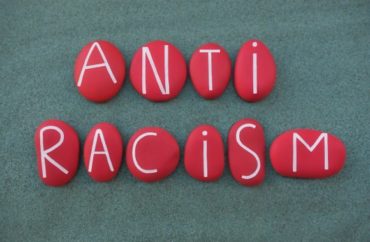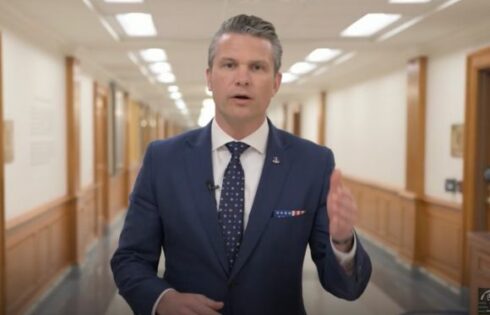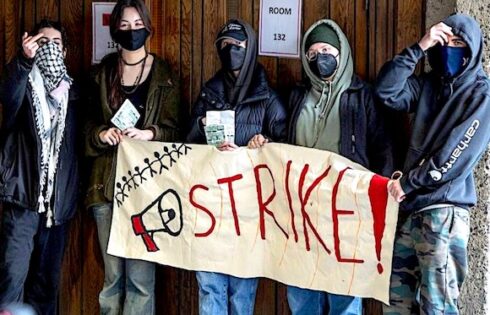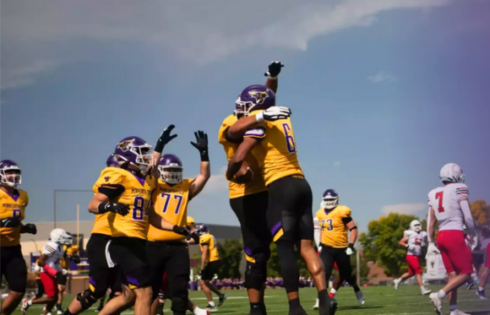
The president of the University of Louisville recently reiterated her stance that UL is the “premier anti-racist metropolitan research university” — because anti-racism is “where the world is going.”
As such, Neeli Bendapudi told WDRB, the school’s anti-racist focus will make students and faculty “more ready for the world of work.”
“To me, anti-racism is extremely simple,” Bendapudi said. “A racist idea is when you say that one race, by itself, is superior or inferior to another. So, anti-racism is the very simple premise that your race does not confer any inherent inferiority, or superiority, to somebody.”
This doesn’t exactly jibe with anti-racism guru Ibram Kendi’s definition, but back in July Bendapudi was more in line with the popular professor/consultant: “It’s not enough to say, ‘I’m not racist.’ We must become anti-racist,” she said.
Bendapudi and Provost Beth Boehm indicated in a letter that UL anti-racism initiatives include recruiting and keeping minority students and faculty, and “build[ing] intentionally anti-racism curriculum across all disciplines.”
Nevertheless, considering the racial atmosphere on college campuses these days, Bendapudi comes across as rather reasonable: She welcomes debate about UL’s anti-racism measures. Bendapudi has taken the (unpopular) position that the campus police department should not be abolished, and she understands some of the criticism directed at Black Lives Matter (its connection to Marxism, for example).
UL Pan-African Studies Chairman Ricky Jones, who earlier this year was reprimanded for physically threatening a student (he claims it was a joke), said Bendapudi is fighting “an uphill battle.” Polls show Kentuckians view Black Lives Matter overwhelmingly negatively.
“If you’re a biology major, it’s possible right now, not only for you to go through the University of Louisville and not encounter a Black studies course, but you can go through the University of Louisville and not encounter a Black professor,” Jones said. “That’s the reality … you can avoid Blackness, period.”
Maliya Homer, the president of U of L’s Black Student Union, described the initiative[s] as “infeasible at its base” during a memorial ceremony for Breonna Taylor earlier this month.
“A premier anti-racist university would not have cops at all, let alone have a partnership with one of the most violent police forces in the South (Louisville Metro police), the one that took Breonna’s life,” Homer said at the Oct. 2 event, with Bendapudi sitting a few feet away. “A premier anti-racist university would be free of charge to attend. A premier anti-racist university is an oxymoron, because institutions are inherently violent. And as a business, this university works to uphold capitalism and all of its functions.” …
On the other end of the spectrum, some worry about anti-racism leading to racial preferences in hiring and a narrowing of the range of tolerable speech and debate at U of L.
“I think that’s the risk when you go down this road of anti-racism,” said Russ Weaver, a professor of law, who describes himself as a libertarian. “Are you essentially cutting off all debate? Is somebody considered a racist because they don’t agree with that position?”
Weaver, who calls himself “a big fan” of Bendapudi, said the initiative would succeed if it leads to “truly colorblind” policies.
Last month, UL dealt with student protests over a campus crime alert which had warned of a “Black Male wearing a red hoodie.” Bendapudi said the alert “did not serve its intended purpose” and “likely made many on our campus feel less safe than more safe,” while the UL student government called it “incredibly vague” and “inexcusable.”
MORE: UL leaders accuse nation of systemic racism over Breonna Taylor case
MORE: U. Louisville dedicates $2.4 million to hiring professors of color
IMAGE: yournameonstones / Shutterstock.com
Like The College Fix on Facebook / Follow us on Twitter





Please join the conversation about our stories on Facebook, Twitter, Instagram, Reddit, MeWe, Rumble, Gab, Minds and Gettr.